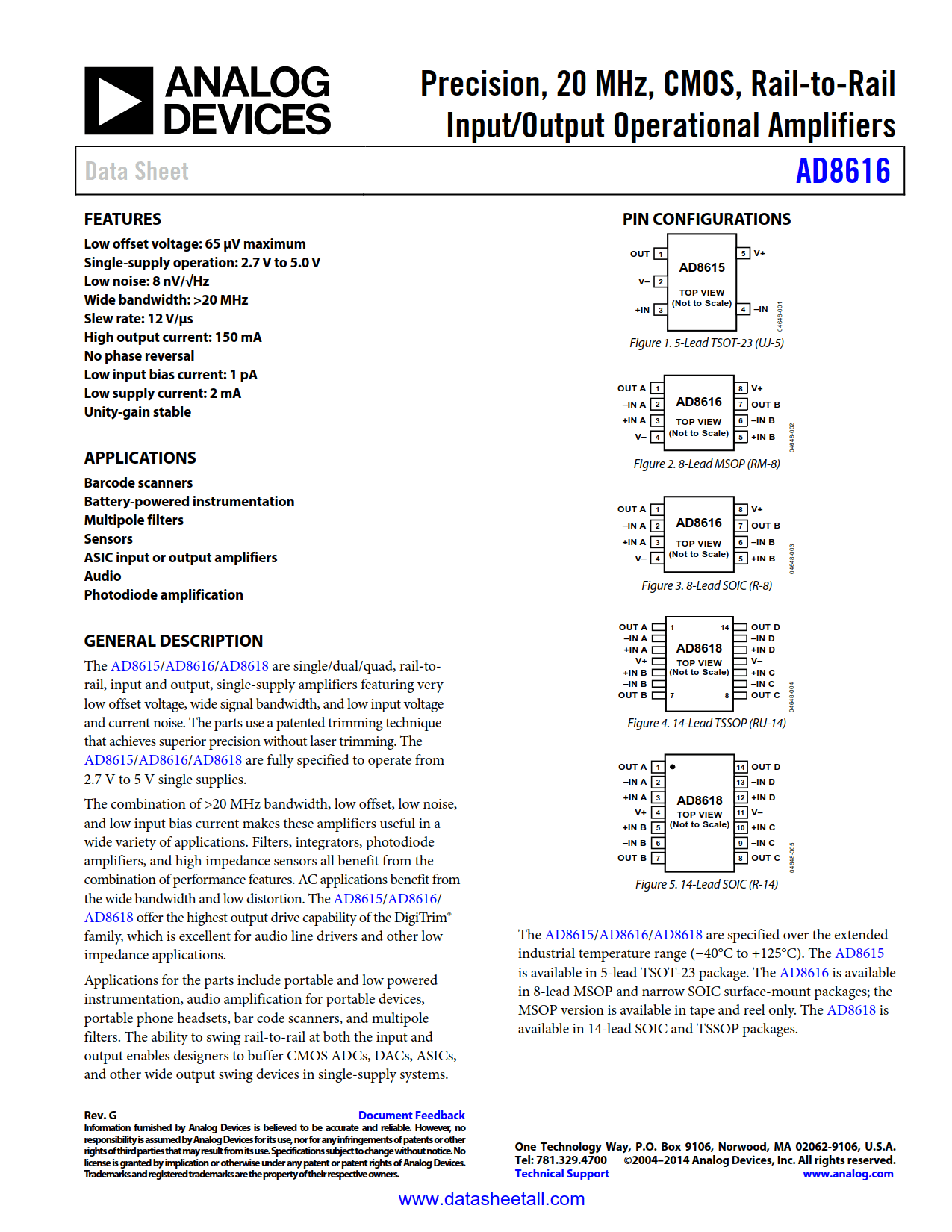
AD8616 Datasheet
Precision 20 MHz CMOS Rail-to-Rail Dual Operational Amplifier

Precision 20 MHz CMOS Rail-to-Rail Dual Operational Amplifier
| Part No. | In Stock | Price | Packaging | SPQ | Marking | MSL | Pins | Temp Range | Package Description |
| AD8616ARMZ | 3000pcs | $1.962 | Tube | 50 | A0K | 1 | 8 | -40°C ~ 125°C | 8-Lead MSOP |
| AD8616ARMZ-R2 | 0 | $1.962 | Reel | 250 | A0K | 1 | 8 | -40°C ~ 125°C | 8-Lead MSOP |
| AD8616ARMZ-REEL | 3000pcs | $1.962 | Reel | 3000 | A0K | 1 | 8 | -40°C ~ 125°C | 8-Lead MSOP |
| AD8616ARZ | 12pcs | $1.962 | Tube | 98 | AD8616A | 1 | 8 | -40°C ~ 125°C | 8-Lead SOIC |
| AD8616ARZ-REEL | 0 | $1.962 | Reel | 2500 | AD8616A | 1 | 8 | -40°C ~ 125°C | 8-Lead SOIC |
| AD8616ARZ-REEL7 | 5000pcs | $1.962 | Reel | 1000 | AD8616A | 1 | 8 | -40°C ~ 125°C | 8-Lead SOIC |
The AD8616 is dual rail-to-rail input and output single supply amplifiers featuring very low offset voltage, wide signal bandwidth, and low input voltage and current noise. These amplifiers use a patented trimming technique that achieves superior precision without laser trimming. All are fully specified to operate from +2.7 V to +5 V single supply.
The combination of low offsets, low noise, very low input bias currents, and high speed make these amplifiers useful in a wide variety of applications. Filters, integrators, photo-diode amplifiers and high impedance sensors all benefit from the combination of performance features. Audio and other AC applications benefit from the wide bandwidth and low distortion.